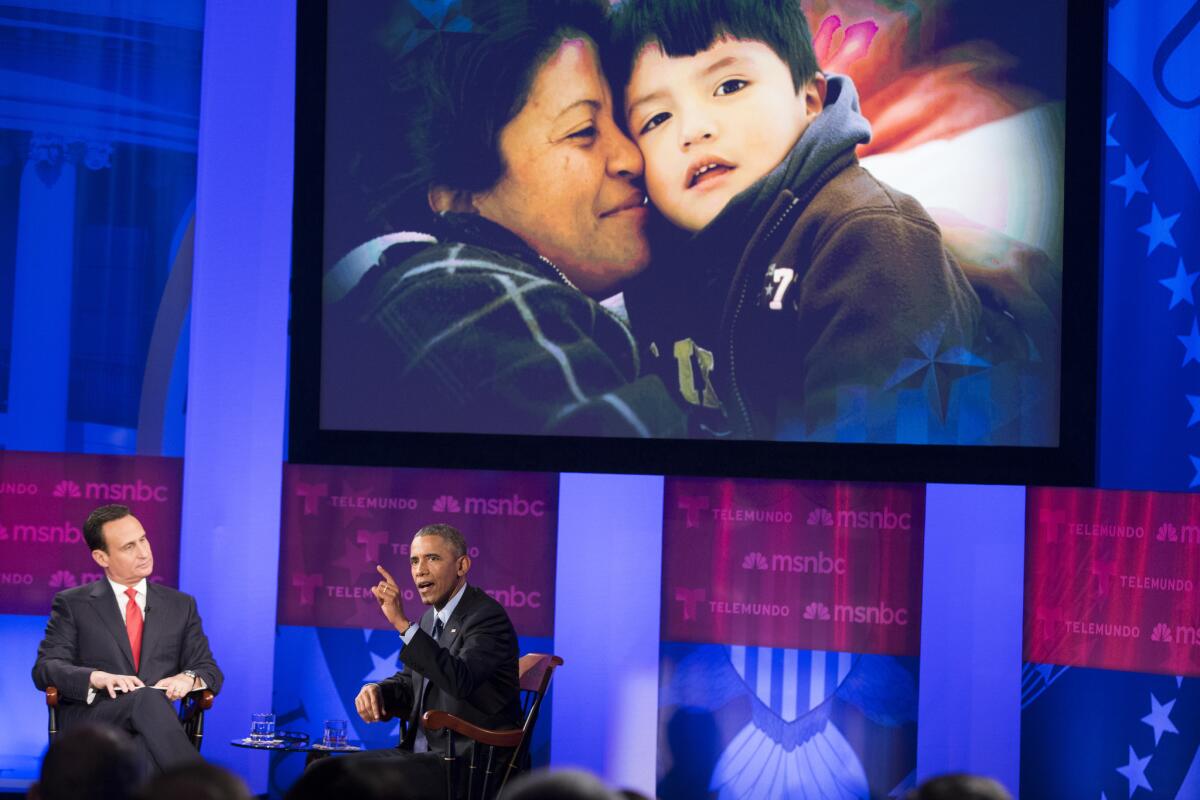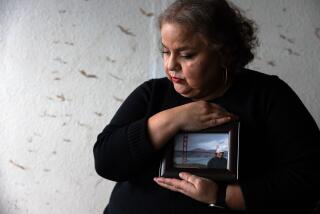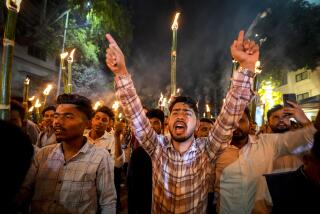Editorial: U.S. visa denials need more explanation

Fauzia Din, a naturalized U.S. citizen from Afghanistan who now lives in Fremont, Calif., wants to bring the man she married in 2006 to join her in her adoptive country. Her situation is poignant and her claim that the U.S. government mistakenly denied her husband a visa is at least plausible. Unfortunately, the same can’t be said for the constitutional argument her lawyers offered to the Supreme Court this week.
Din’s husband applied for a visa and was interviewed by an official at the U.S. Embassy in Pakistan. But his application was denied in 2009 under a provision of immigration law that excludes applicants linked to “terrorist activities.” No more detailed explanation was provided, though it’s known that he worked as a clerk in Afghanistan’s Ministry of Social Welfare under the Taliban.
Given the errors that have plagued the U.S. government’s response to terrorism — including the wrongful inclusion of thousands of innocent people on the government’s no-fly list and in its terrorist screening database — it’s not hard to imagine that a consular official could have made a mistake in concluding that a visa applicant was tainted by terrorist ties. That, however, is not the question for the court, which must answer whether the spouse of a disappointed applicant has a right under the Constitution to have a judge second-guess a visa denial.
An appeals court said yes, and concluded that the government had failed to offer Din a “facially legitimate and bona fide reason” for the denial of her husband’s application. She was owed such an explanation, the court said, because the denial interfered with her “protected liberty interest in marriage.”
But as the Obama administration noted, the right to marry — which the Supreme Court has said in the past is part of the “liberty” protected by the Constitution — doesn’t include the right to live with one’s spouse in the U.S. if that spouse has been deported or denied entry. Also, if a spouse can challenge a visa denial in court, why not some other relative? During oral arguments, Din’s lawyer agreed that the principle would extend to lawsuits by parents of visa applicants and perhaps by children and siblings.
Most of the justices seemed reluctant to involve the courts in reviewing rafts of visa denials, and we can understand their caution about reading such a requirement into the Constitution.
But Congress should act to require the State Department to provide fuller information about visa denials — even when alleged ties to terrorism are asserted — and to make it easier for applicants and their families to seek a review of adverse decisions.
Follow the Opinion section on Twitter @latimesopinion and Facebook
More to Read
A cure for the common opinion
Get thought-provoking perspectives with our weekly newsletter.
You may occasionally receive promotional content from the Los Angeles Times.






